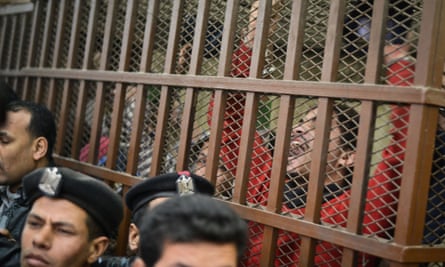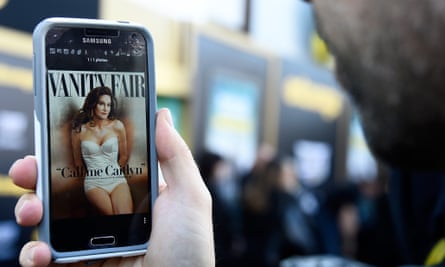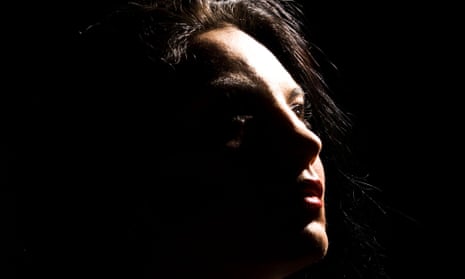“They’re she-males!” declared the Egyptian police officers after raiding Aisha’s home. Along with three friends she was arrested and taken to the police station, where the beatings began.
“He [the police officer] beat up my friend with an electric stick. He was hitting her on her head, on her stomach, on her butt, everywhere; she was screaming,” claims Aisha.
Aisha is one of many transgender women who have been targeted in Egypt since 2014. More than 150 transgender people, women in particular, have been arrested, says Scott Long, a gender and rights activist who has been actively documenting the crackdown.
The day after they were detained Aisha and her flatmates were sent to court, and on 1 April 2014 she was sentenced to three years in prison – the maximum sentence under Egypt’s debauchery laws.
Crackdown
In December, the arrest of at least 25 men during a massive police raid on a bath house in Cairo made international headlines in a series of dramatic events, part of a crackdown that has been ongoing for months, even though homosexuality is not illegal in Egypt.
Transgender woman and activist Yara says the ongoing attacks against LGBT people in Egypt has singled out transgender women more than any other group.
She believes this is due to their visibility: while most do not present as female in public, even in private they run the risk that their neighbours might see them and report them to the police.
Dalia Abdel Hameed, a gender rights officer at the Egyptian Initiative for Personal Rights, disagrees. She doesn’t think that transgender people have been targeted more than gay men, but she does think men who present effeminately are more likely to be victimised.
She says that around 200 people, both transgender and gay, have been arrested in the current clampdown in Egypt, and believes that the media and police are more likely to highlight the arrest of transgender women because it means they can release pictures and videos of “men” in dresses, likely to sell newspapers.

The concept of transgender identity, and even the idea that people who were labelled as male at birth could willingly transition to female, is relatively new in Egypt, says Long. “When I was working here in 2003, transgender identity didn’t seem to exist. I’m sure it did, but it wasn’t public,” he says.
Long argues the moral component of the state’s crackdown on LGBT people is amplified in the case of transgender women because “they’re seen as a particularly degrading example of men who reject their own masculinity”.
One of the first cases that brought transgender issues into public consciousness was in 1988. Sally Mursi was a student at Al-Azhar’s medical school, and found a doctor to perform sex reassignment surgery. She then tried to return to Al-Azhar as a female student, but the school refused to accept her back.
Abdel Hameed says that in 2003 the medical ethics code changed, declaring that doctors could not perform corrective gender reassignment surgery for people who “elect” to change their gender. This means that intersex people – those born with physical characteristics that do not fit typical definitions of male or female – could get the surgery, but transgender people could not.
As a result, many transgender women buy oestrogen hormones over the counter, rather than taking them under the supervision of a doctor. This can lead to several serious health complications, says Abdel Hameed, including depression, a problem that Yara says is common among transgender women.
Society’s attitudes
Even before the current crackdown it was difficult to live as a transgender woman in Egypt. It is almost impossible to change your legal identity from male to female, or vice versa, and because of this identity cards are a key block for transgender women, especially when trying to find employment.
“What you see is different than what’s written on the identity card, where it says you’re a boy. That causes a lot of problems, because we do not have an open-minded society,” Yara explains. She believes this is part of the reason why many transgender women turn to prostitution.
There are no exact figures on the percentage of transgender women engaged in sex work, but Long, Abdel Hameed and Yara say many women earn a living this way.
It is difficult for anyone to get a job in the current economic climate in Egypt, and being transgender only exacerbates this. The fact there is a demand for transgender women in sex work means it’s one of the few jobs they can rely on, Long adds.

But this puts transgender women at further risk: “The law criminalises the sex worker, but not the client, so the client gets off scot-free and the sex worker gets arrested,” says Long.
Despite widespread prejudice, Aisha says that even in prison the idea that transgender identity is different to homosexuality is starting to be understood.
She reports multiple instances of prison guards sympathising with her and her friends. “They were treating us like we were girls. Around 90% sympathised with us. They said: ‘You have a mental condition and jail is not for you’. They provided us with food sometimes. When we had nothing left they would bring us food, water, Pepsi and cigarettes.”
Yara says the perception that transgender identity is a medical condition and not a choice is largely a good thing in Egypt, as it garners more sympathy.
“It’s worse if people have a religious point of view, because then it’s a big sin and people will do crazy things. But mental disorders are in psychological textbooks.”
Yara herself realised she was transgender four or five years ago. She came out to her family but “they kicked me out and I had a lot of problems, but I have a connection with my mother now,” she says.
Yara is now working to raise awareness about transgender identity and to combat commonly held myths. She started a Facebook page for transgender people, where she posts and translates articles about gender identity.
She says she wants it to be a place “of safety and support for transgender people, for them to talk easily.”
Yara does not know if she wants to stay in Egypt. “I wanted to leave in the past,” she explains, “but it’s not an easy answer, to leave the people here... What would I do? Where would I go?”
For Aisha, the answer is simpler: “I want to go to a country that can understand the rights of human beings like us. I think most countries, maybe they don’t like us, but at least they’re good to us. For example in America, maybe they do not like us, but at least they’re not harmful to us, they’re not trying to hurt us,” she says.
Some name have been changed
Pesha Magid is a reporter at Mada Masr, you can follow her @PMagid
A version of this article originally appeared on Mada Masr, part of the Guardian Africa network

Comments (…)
Sign in or create your Guardian account to join the discussion